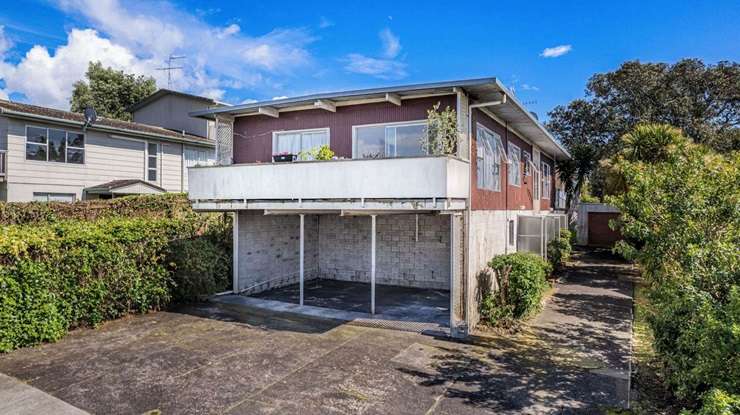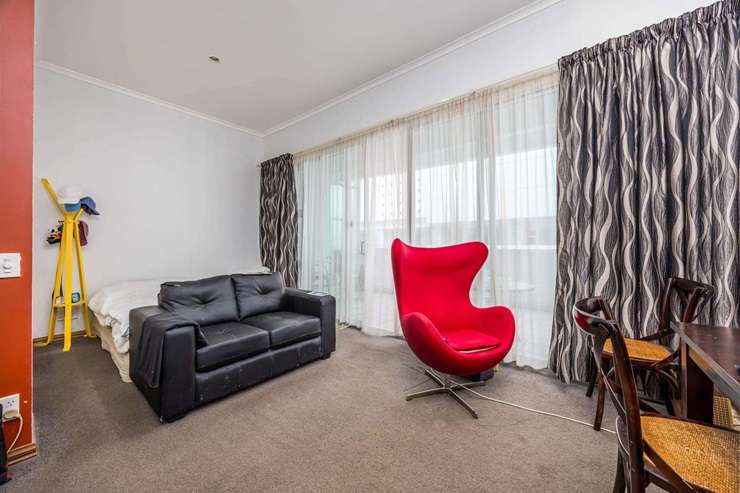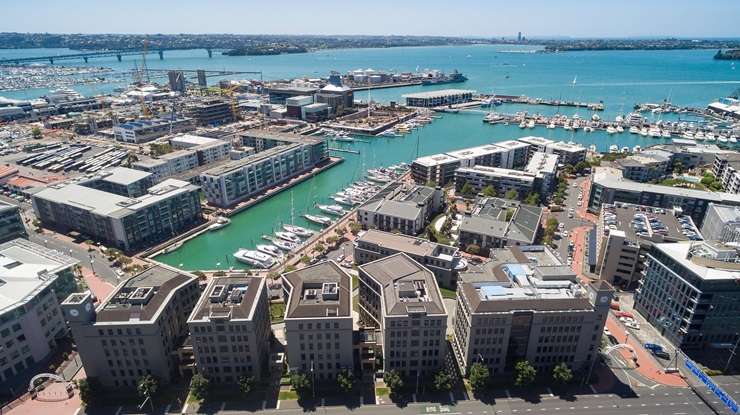- Price of leasehold properties is typically low but buyers need to be aware of ground rent costs
- Around 4000 leasehold properties in Auckland, the majority of which are in the CBD, Parnell, and St Johns
- Agent says demand is strong, but vendors need to be realistic about pricing
A harbourside apartment for $35,000. A block of four units for $1000. The prices might seem like they hail from Auckland’s residential market 40 years ago, but they are real and very much current.
Start your property search
They also come with a catch. The one-bedroom apartment at 24/137 Quay Street and the units at 20 Strong Street, in St Johns, are leasehold properties, and whoever buys them will be paying ground rent to the leaseholder.
There are around 4000 leasehold properties in Auckland. Exact numbers are hard to come by. Wayne Shum, senior research analyst at OneRoof’s data partner, Valocity, said it was difficult to single out leasehold homes from property records.
“Many properties have leases in place that look like leaseholds on paper, such as private investors leasing their residential homes to [Kāinga Ora Homes and Communities], retirement villages, and commercial accommodation properties,” Shum said.
“We believe the Auckland count is between 3600 and 4000. The 3600 includes the well-known ground lease entities such as Whai Rawa Railway Lands [Ngāti Whātua Ōrākei], St Johns Holdings, Cornwall Park Trust, Viaduct Harbour Holdings, council and government. It also includes Wynyard Quarter apartments next to the Auckland Fish Market, where on paper they are leasehold, but the ground rent is paid up 125 years. So, in this and the next generation, it is essentially freehold [with no rent to pay].”

A block of four leasehold flats at 20 Strong Street, in Auckland’s St Johns, has a declared reserve of $1000. Photo / Supplied

A one-bedroom flat at 7/139 Quay Street, in Auckland Central, is for sale for $49,000. Photo / Supplied
Once Kāinga Ora properties and others are filtered out, the top three suburbs for leasehold properties are Auckland Central, where 3190 of the suburb’s 21,486 properties are leasehold; Parnell (288 out of 3576 properties); and St Johns (74 out of 2175 properties). “Others are scattered around One Tree Hill, Epsom, and Orakei,” Shum said.
With leasehold, the homeowner owns their home, but not the land beneath it. Typically a leasehold homeowner pays annual ground rent payments to the land owner. Some leases are in perpetuity, others are for a number of years such as 100 and at the end of the lease they no longer have a right to occupy the land. Ground rent is reviewed from time to time during the lease period, and is usually based on a percentage of the land value.
Shum said it was hard to determine the market for leasehold properties. While median sale price figures for leasehold properties in Auckland Central, Parnell and St Johns had fallen 30% over the last three years, Shum said specific factors, such as the date of the next lease renewal, anticipated ground rent increases, and site improvements determined the value of leasehold properties. “We cannot provide an exact value trend, as the properties are likely to have different lease terms,” he said.
Discover more:
- Mortgage rates may not drop much despite OCR cut, experts warn
- Owner selling unusual bush home before the bank steps in
- Expats clash over the phone at auction of 'old school' bach
“One other driving factor for leasehold is the change in the District Plan. The underlying land value on which the ground rent is based can also increase significantly. For example, the unitary plan in Auckland may allow for an apartment/townhouse [development] on a site that previously only allowed for a single residential home.”
City Sales agent James Mairs told OneRoof there was good demand for leasehold apartments, despite their limitations, and many sold within a week or two of hitting the market, providing vendors were realistic about the price. “They are really popular,” he said.

Valocity senior research analyst Wayne Shum says determining the value of leasehold properties is difficult. Photo / Fiona Goodall
He is currently selling a one-bedroom flat at 7/139 Quay Street for $49,000, with his listing on OneRoof pitched at “savvy investors”.
Mairs said he had also sold four to five apartments in The Landings, in Parnell, in the last month. The complex, across the road from Auckland’s old central railway station, has a heated indoor pool, gym and sauna, and the apartments, said Mairs, “are all returning 10 to 15% yet yield”.
“The Landings is just like any other apartment building, except that it’s leasehold. It is particularly good because the ground rents are lower.
“I have also been selling a lot in Scene 1-2-3 [buildings], not to just investors. There are people that want to live there.” The Scene apartments have an unusual ownership structure which is different from typical unit titled apartment blocks.

Auckland’s Viaduct, where the apartments are in a high-value location but are also on leasehold land. Photo / Supplied
Hundreds of apartment owners on Whai Rawa Railway Lands face seven-year ground rent increases next year, which is likely pushing down sale prices currently. Mairs’ colleague Scott Dunn told Radio New Zealand that some ground rents might double.
Typically as ground rents for leasehold homes and apartments get closer to a review, their sale prices can drop.
Downtown Auckland apartment owners are not the only ones with uncertainty over their leases. Newsroom reported in July that some St Johns residents felt they were being pushed out of their leasehold homes.
The homes were originally built on land belonging to St John’s Theological Collage, an Anglican seminary in East Auckland. However the leases had been sold on, meaning the homeowners no longer paid the church trustee for their leases.
Newsroom wrote that the St John’s College Trust Board was estimated to have held 1000 leases in the past, which brought in nearly $10m a year.
The portfolio is owned by private investors and some homeowners told Newsroom they felt they were being pushed out after being sent maintenance schedules. If they didn’t do the work, a clause was triggered and the leases would be forfeited.
- Click here to find more properties for sale in Auckland





















































































